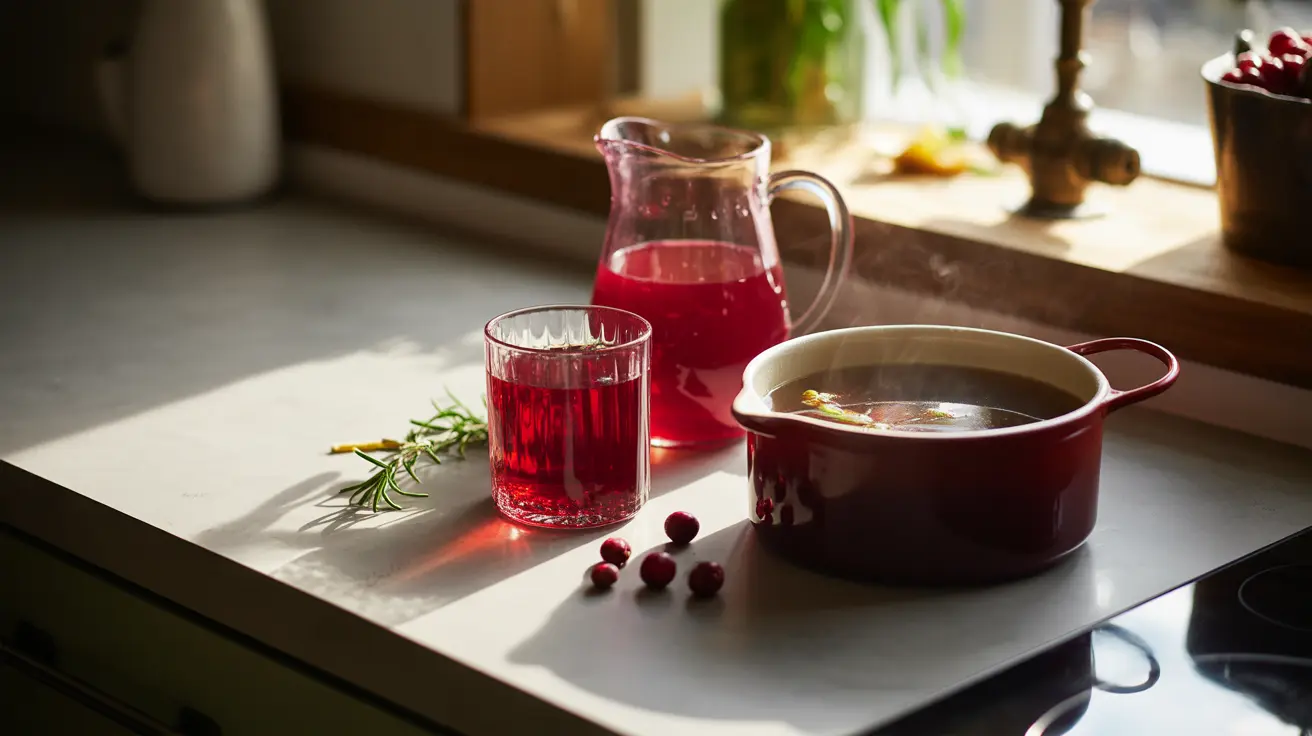Whether you're avoiding alcohol for personal reasons or simply ran out of red wine while cooking, finding the right substitute can make or break your recipe. Understanding how to replace red wine in cooking while maintaining the rich, complex flavors it provides is essential for creating delicious dishes without compromise.
In this comprehensive guide, we'll explore the best alternatives to red wine in cooking, including both fruit-based and savory options, along with expert tips for achieving the perfect balance of flavors in your alcohol-free dishes.
Best Non-Alcoholic Substitutes for Red Wine
Several excellent alternatives can effectively replace red wine in your favorite recipes:
Fruit-Based Alternatives
These options provide similar acidity and complexity to red wine:
- Pomegranate juice
- Cranberry juice
- Red grape juice
- Tart cherry juice
Savory Substitutes
For dishes requiring deeper, more complex flavors:
- Beef or vegetable broth
- Balsamic vinegar
- Red wine vinegar
- Stock with added herbs
How to Use Wine Substitutes Effectively
Balancing Sweetness and Acidity
When using fruit juices as red wine substitutes, consider these key adjustments:
- Add a splash of vinegar to cut sweetness
- Reduce juice by half to concentrate flavors
- Mix with stock for more savory applications
- Add herbs and spices to enhance complexity
Proper Measurements and Ratios
Follow these general guidelines when substituting:
- Use equal amounts of stock or broth
- For fruit juices, use 3/4 the amount called for and add 1-2 teaspoons of vinegar
- When using vinegar alone, use 1/2 the amount and dilute with water or broth
Enhancing Flavor Without Wine
To create rich, complex flavors without wine:
- Layer different herbs and spices
- Use umami-rich ingredients like mushrooms or tomato paste
- Incorporate caramelized onions or garlic
- Add a splash of aged balsamic vinegar
Frequently Asked Questions
What is the best non-alcoholic substitute for red wine in cooking, and how do I use it?
The best substitute depends on your recipe. For savory dishes, use equal parts beef or vegetable broth mixed with 1 tablespoon of red wine vinegar per cup. For fruit-based sauces, try pomegranate or cranberry juice mixed with a splash of vinegar to balance sweetness.
Can I use cranberry juice instead of red wine in recipes, and how do I adjust for sweetness and acidity?
Yes, cranberry juice works well as a red wine substitute. Use 3/4 cup cranberry juice plus 1-2 teaspoons of red wine vinegar or balsamic vinegar for every cup of wine called for in the recipe. This helps balance the sweetness while maintaining the desired acidity.
Are there any health benefits to using pomegranate juice as a red wine substitute in cooking?
Yes, pomegranate juice is rich in antioxidants, particularly polyphenols, and offers anti-inflammatory properties. It provides similar health benefits to red wine while being alcohol-free and suitable for everyone.
How do I make a savory dish flavor-rich without alcohol if I'm avoiding red wine for dietary or health reasons?
Create depth by combining umami-rich ingredients like mushrooms, tomato paste, and caramelized onions. Use herbs like thyme and bay leaves, and incorporate beef or vegetable stock with a splash of balsamic vinegar for complexity.
What are some tips for balancing flavor and acidity when replacing red wine with broth or fruit juice in recipes?
Add small amounts of vinegar (red wine or balsamic) to adjust acidity, use herbs and spices to enhance complexity, and consider reducing your substitute liquid to concentrate flavors. Taste and adjust seasonings throughout cooking to maintain proper balance.




